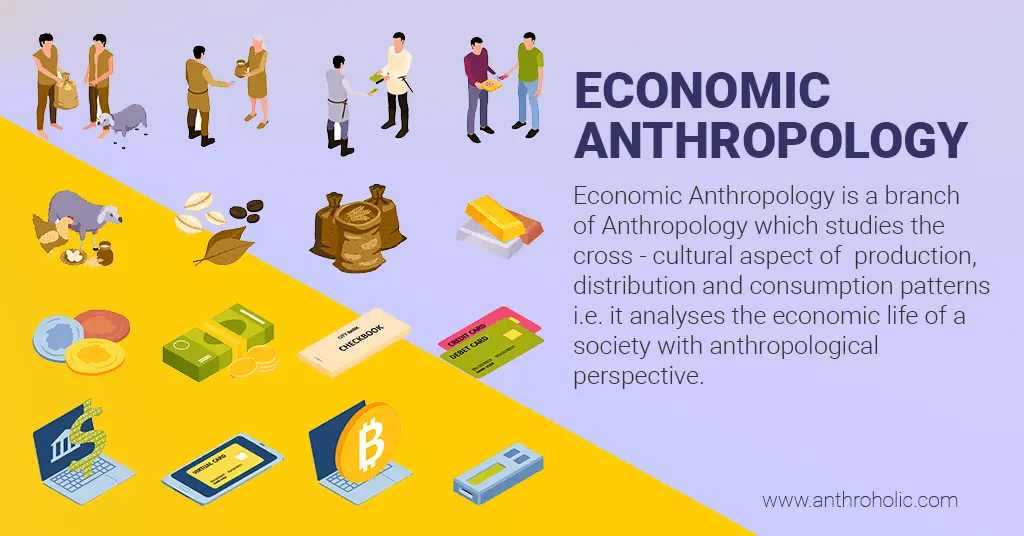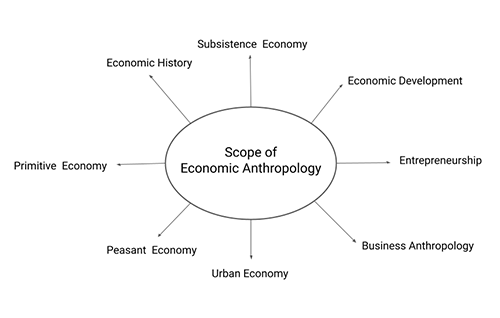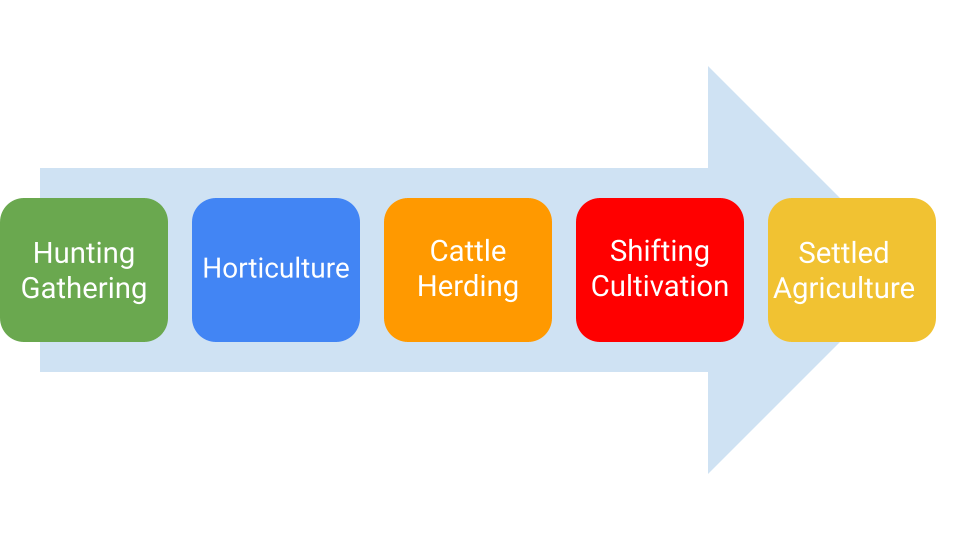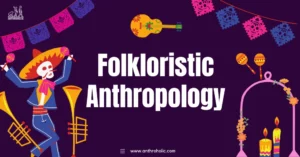AI Answer Evaluation Platform Live Now. Try Free Answer Evaluation Now
Economic Anthropology
Economic Anthropology is a branch of Anthropology which studies the cross – cultural aspect of production, distribution and consumption patterns i.e. it analyses the economic life of a society with anthropological perspective.

Economic Anthropology is a synthesis of economics and anthropology. In 1989, Plattner defined Economic Anthropology as the study of economic institutions by using the ethnographic methods. This empirical approach of studying the economy of a society makes economic anthropology a different discipline than economics. The models used in modern economics are inadequate to understand the nature of traditional societies. Just like we examine family, marriage, and kinship, it is the responsibility of an anthropologist to analyze the economic component of a society.
Extent/ Scope of Economic Anthropology

Its extent has been widened due to the study of economic aspects of primitive, peasant and modern societies.
- Subsistence Economy – It examines the socio-economic subsistence systems, including agriculture, pastoralism, and hunting and gathering.
- Economic History – It examines how economic systems have changed through time, taking into account changes in production, distribution, and consumption patterns.
- Primitive Economy – Primitive economies are distinguished by simple tools, little/ no specialization of labor, and familial production.
- Peasant Economy – It analyses the rural farmers’ economic structures.
- Urban Economy – It investigates the economic models of migrants and urban poor.
- Business Anthropology – It investigates the internal functioning of businesses.
Relevance of Economic Anthropology

- In primitive societies and cultures, the economies are very closely associated with their culture. There is a need for anthropology to understand the nuances of culture.
- A historical, comprehensive, and comparative methodology is required to comprehend how culture, environment, and economics interact.
- Kinship, religion, descent groups, and other factors play a role in economic decision-making in tribal communities (Mauss, 1925).
- Globalisation and transnational capitalism have a significant cultural impact on all societies.
- Because indigenous people are at the vanguard of globalization and MNCs, their interests are jeopardized.
History of Economic Anthropology
The origin of this branch can be traced back to the works of Brownislaw Malinowski in Argonauts of Western Pacific (1922) on Reciprocity. He argued that the economic patterns of the Trobriand Islanders do not fit into modern economics. The people here were involved in the activities known as the Kula Exchange.
Later, Marcel Mauss in The Gift (1925) also talked about reciprocity which was a substitute for market exchange.
After World War II, the works in economic anthropology were majorly wrapped in the ideas of Karl Polanyi. He argued that market exchange was limited to western and industrialized societies and it would be a mistake to apply formal economic theories to non – industrialized societies. He was influenced by the ideas of Marcel Mauss that other factors like kinship and religion play an important part in the economy of a traditional society. This approach was termed as Substantivism (Polanyi, 1944).
Formalist – Substantivist Debate (Ember, 2015)
The Formalist-Substantivist debate in economic anthropology pits those academics who contend that the formal rules of neoclassical economic theory derived from the analysis of capitalist market societies can be used to explain the dynamics of premodern economies (formalist)against those who contend that goods and services in the substantive economy are produced and distributed through particular cultural contexts (substantivists).Formalists argue that the principles of capitalist economy are universal to all societies. Endorsed by Herskovits in his book The Economic Life of Primitive People while the Substantivist school of economic anthropology was empirical in nature.
Economic Organizations
The primitive communities of many places all over the world underwent several stages of socio-economic development over time. These can be seen as follows –

Modes of Exchanges prevalent in different societies
Traditional economic systems are typically associated with simple societies such as tribal societies, rural societies, and so on. It is characterized primarily by a subsistence mode of production with little surplus production. This economy is typically supplemented by other minor occupations such as forest produce collection, etc. However, one of the most important aspects of the traditional economic system is the variety of modes of exchange.
- Barter System – It is direct exchange of goods and services.
- Silent Trade – It is a unique type of exchange in which the exchanging parties do not interact face to face during the exchange process. Popular in The Pygmy Semang and Sakai of Malay and Sinhalese of Sri Lanka.
- Jajmani System – Term introduced by William Wiser. It means how various caste groups interact with one another in an agriculture-based system of production, distribution, and exchange of goods and services.
- Ceremonial Exchange – It is a type of social system in which goods and services are distributed to relatives, friends, and neighbors on various social occasions such as birth, marriage, and death.
- Reciprocity – It is the exchange of goods and services in a society that does not involve the use of money.
- Redistribution – It involves a specific person accumulating money, labor, or goods with the intention of later distributing them.
Case Studies
- Kula Exchange/ Kula Ring (Malinowski, 1922)
- Observed by Brownislaw Malinowski.
- It is a ceremonial exchange among the Trobriand Islanders.
- It is an exchange of two kinds of ornaments.
- Soulava –
- Shell – disc necklaces
- Traded to the north
- Ring in clockwise direction
- Mwali –
- Arm band
- Traded to the south
- Ring in anti-clockwise direction
These are solely exchanged in a ceremonial setting to improve stature and prestige, secure trade, and build mutual trust connections.
3. Potlatch –
- The American Indian tribes of the Northwest Coast hold elaborate feasts known as potlatch, where copious amounts of food and expensive items (such as blankets, copper coins, canoes, etc.) are pompously and competitively distributed to the guests in an effort to degrade them and gain honor for the host.
Conclusion
The importance of economic anthropology has significantly increased recently. It investigates how money relates to various human social strata. Every type of society has a different way of dealing with exchange systems. It varies depending on how much modernization has taken place in the society. Even the man – nature relationship affects the type of economic pattern applied in that culture. There is a need to develop this branch in accordance with the global world today.
See Also
References
- Carrier James. Economic Anthropology. https://www.discoveranthropology.org.uk/about-anthropology/specialist-areas/economic-anthropology.html . Accessed on 02 February 2023.
- Economic Anthropology. https://www.encyclopedia.com/social-sciences/applied-and-social-sciences-magazines/economic-anthropology .
- Ember Carol, Ember Melvin, Peregrine Peter. (2015). Anthropology. Pearson Education; Noida, 2019. Accessed on 02 February 2023.
- Hann Chris. (2017). Economic Anthropology. Oxford Bibliographies. https://www.oxfordbibliographies.com/display/document/obo-9780199766567/obo-9780199766567-0040.xml . Accessed on 02 February 2023.
- Mauss Marcel. (1925). The Gift: The Form and Reason for Exchange in Archaic Societies. Free Press
- Malinowski, Bronislaw. (2001). Argonauts of the Western Pacific: An Account of Native Enterprise and Adventure in the Archipelagoes of Melanesian New Guinea [1922/1994] (1st ed.). Routledge. https://doi.org/10.4324/9781315014463. Accessed on 02 February 2023.
- Morgan M.S, Qin D. (2001). Economic Anthropology. http://www.ub.edu/reciprocitat/GER_WEB_CAT/Publicacions/Publicacions%20Susana/Art._Economic_Anthropology.pdf . Accessed on 02 February 2023.
- Polanyi Karl (1944). The Great Transformation: The Political and Economic Origins of Our Time. New York: Holt, Rinehart & Winston.
- Sahlins, Marshall. (1969). Economic anthropology and anthropological economics. Social Science Information, 8(5), 13–33. https://doi.org/10.1177/053901846900800504. Accessed on 02 February 2023.




